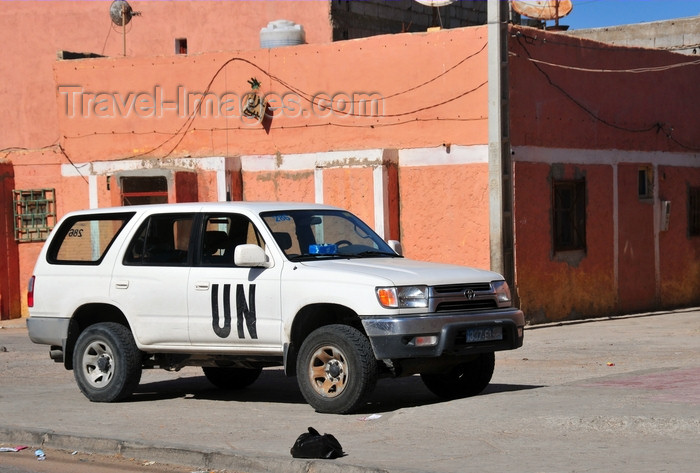By Louis Charbonneau
UNITED NATIONS (Reuters) - South Africa's United Nations envoy voiced outrage on Tuesday at the watering-down of a U.N. report on the disputed territory of Western Sahara, which the Polisario Front independence movement says the world body changed due to French and Moroccan pressure.
"That was very deplorable," South African Ambassador Baso Sangqu told reporters after a closed-door meeting of the U.N. Security Council. "We have raised it in the council."
Reuters has obtained all three versions of Secretary-General Ban Ki-moon's report on the U.N. force in Western Sahara, known as MINURSO.
"All of it (was) progressively being neutralized," Sangqu said of the three revisions. "We think it's not good for the secretary-general. Not now, not on this issue, not in the future. And I think most colleagues share this view."
In his report, Ban complained that the U.N. force is "unable to exercise fully its peacekeeping monitoring, observation and reporting functions, or avail of the authority to reverse the erosion" of its ability to function.
He also expressed concern about the monitoring of the force by Moroccan authorities, which he said was hampering its ability to function, and suggested Rabat may have been spying on the peacekeepers.
Ban's report came after the latest round of U.N.-mediated talks last month between Morocco, the Polisario Front independence movement, Algeria and Mauritania on the future of Western Sahara failed to make any real progress. Previous rounds held during the past five years ended similarly.
U.S. Ambassador Susan Rice, president of the Security Council this month, did not comment on the changes. She said the council would work with the final draft that it received in preparing a resolution to extend the mandate of MINURSO for another year before it expires later this month.
Morocco says Western Sahara, a sparsely populated tract of desert that has phosphates, fisheries and, potentially, oil and gas, should come under its sovereignty, while the Polisario says it is an independent state.
The Polisario waged a guerrilla war against Moroccan forces until the United Nations brokered a ceasefire in 1991 with the understanding that a referendum would be held on the fate of the territory. The referendum never took place and attempts to reach a lasting deal since then have foundered.
FRENCH DENIAL
Another senior Western diplomat said on condition of anonymity that it was unfortunate the United Nations had caved in to pressure from Morocco and France, Rabat's traditional protector on the council, to amend the report.
"It's certainly disappointing that the text that was circulated by the secretariat ... then came out in a different version, after lobbying by several member states," he said. "I don't think that's good for the credibility of the secretariat."
"But it's still a hard-hitting report," he added.
U.N. spokesman Eduardo del Buey played down the significance of the changes to the report.
"It is not unprecedented for reports to be the subject of discussion and sometimes changes," he said. "It is now for Security Council members to consider it."
Ahmed Boukhari, Polisario's representative in New York, said Ban's diluted report still managed to condemn what he said was the "unacceptable conduct of Morocco."
He also had harsh words for France. "We can only denounce, as we have done before, the feverish attempts by the French delegation at the U.N. which aim to place all obstacles in the way of Security Council action on Western Sahara," he said.
Morocco has not given any clear response to the allegations. France's U.N. mission rejected all charges of pressuring the U.N. secretariat or blocking council action on Western Sahara.
"We strongly deny these groundless allegations," a spokesman for the French U.N. mission said.
Diplomats said the council was set to renew MINURSO's mandate next week. The renewal of the mandate marks an annual battle in the council, with Morocco backed by France and Polisario supported by African nations, which have repeatedly called for the peacekeepers to monitor human rights abuses.
The council has not approved the idea of rights monitoring, which Polisario says is due to Moroccan and French opposition.






0 comments:
Post a Comment